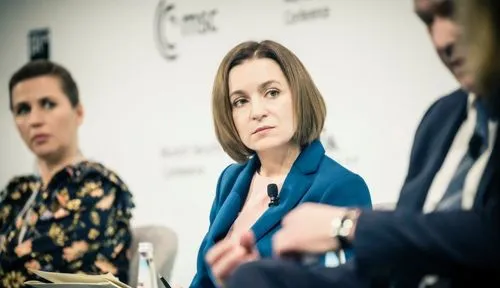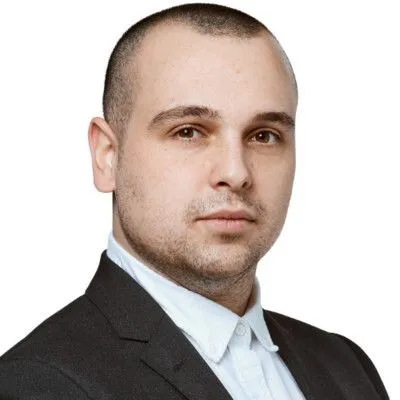Moldova, facing cyberattacks as part of alleged Russian coup plan, asks for Western support
Maia Sandu, the pro-European president of Moldova who last week warned of an active Russian plot to overthrow her country’s government, told the Munich Security Conference on Saturday that she needed a range of support from other European nations to defend the integrity of her state.
Her calls for support come at a moment of crisis for Moldova, with Prime Minister Natalia Gavrilita resigning last week due to domestic challenges, including inflation and energy security issues exacerbated by Russian activity.
President Sandu said Russia was “waging hybrid war against Moldova” including through “propaganda and disinformation” alongside “multiple cyberattacks” and “multiple false bomb alerts.” These actions are intended to undermine social cohesion, provoke protests and allow external saboteurs to launch a coup, she said.
Speaking on a panel about “partnering up for European Security” — alongside NATO Secretary General Jens Stoltenberg, Finland’s President Sauli Niinisto, and Denmark’s Prime Minister Mette Frederiksen — Sandu described months of Russian aggressions against her country.
“In the fall they tried to use the energy crisis, hoping that we’ll not be able to pay the very high prices for gas and electricity. When they saw that the government managed to find the money, Gazprom cut gas supply by 60% hoping that we will not find alternative sources, and that the paid protests would overthrow the legally elected government.”
Last week she detailed another Russian plot, initially announced by the Ukrainian president who said his country had intercepted the plans. The coup would have involved “diversionists with military training, camouflaged in civilian clothes, who will undertake violent actions, attack some state buildings, and even take hostages,” Sandu told journalists at the time.
She further described these plans on Saturday by saying Russia “might try to bring people from outside the country to organize this violent protest and then to force the authorities into negotiations on snap parliamentary elections.”
She spoke ahead of a rally scheduled for Sunday in the Moldovan capital of Chisinau, organized by pro-Russian political groups, to protest against the pro-Western government and particularly its handling of the energy crisis.
“All of this is meant to destabilize the society and to use the difficult economic situation that we face because of Russia’s war in Ukraine to bring people into the streets and then to change the government, and to bring a pro-Russian government that it could use also against Ukraine,” she said.
Denmark’s Frederiksen praised the Moldovan leader: “Maia, you really are a brave European president. Moldova is a small, is a poor, and a fragile European country. You can be next in line, when we’re talking about Russia. And you’re standing up — you as a person — for democracy, rule of law, and anti-corruption.”
President Sandu called on Frederiksen and his European peers to support Moldova in its time of crisis. “Because of the internal threats of the hybrid war, we need support to develop our strategic intelligence capabilities, to deal with cyberthreats, we need support to modernize our border security and control, we need support for special intervention focus capabilities.”
“This is a very big issue… it’s probably now the most damaging element for our society and our democracy,” said Sandu.
Alexander Martin
is the UK Editor for Recorded Future News. He was previously a technology reporter for Sky News and is also a fellow at the European Cyber Conflict Research Initiative.

